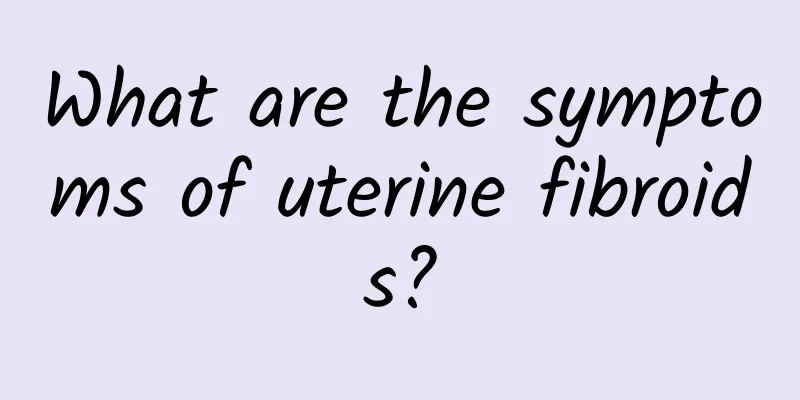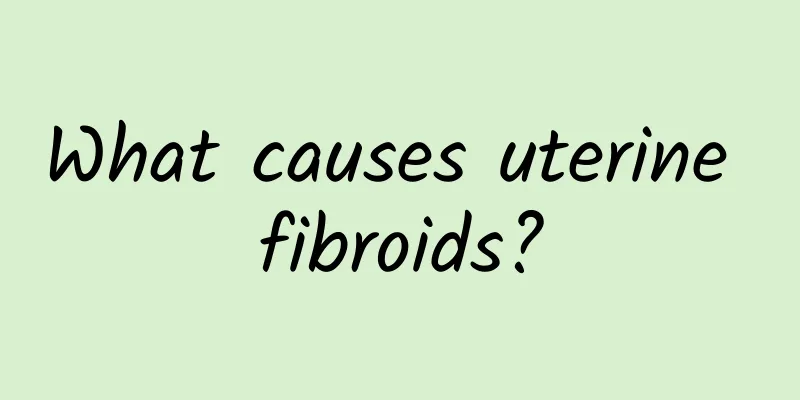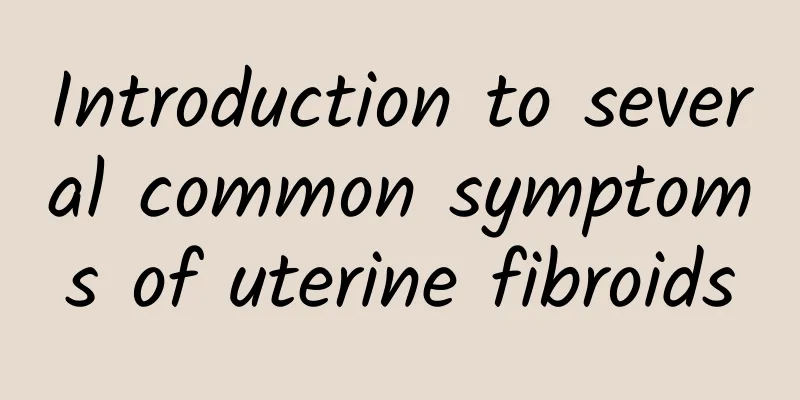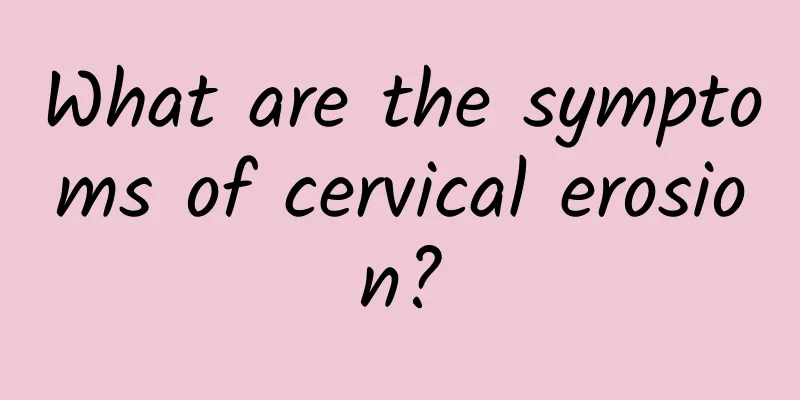What are the symptoms of uterine fibroids?

|
Symptoms of uterine fibroids vary greatly depending on their location, size, and number. Common symptoms include abnormal menstruation, pressure or pain, abdominal lumps, etc. If you find relevant symptoms, you should seek medical attention in time to clarify the condition. The following will specifically introduce several typical symptoms that uterine fibroids may show and how to deal with them. 1. Abnormal menstruation The most common manifestation of uterine fibroids is menstrual disorders, such as significantly increased menstrual flow, prolonged menstrual periods, or irregular menstrual periods. This is because fibroids affect the normal shedding of the endometrium, especially submucosal fibroids, which are more likely to cause this symptom. For menstrual abnormalities, treatment can be carried out by regulating hormone drugs such as progesterone and oral contraceptives. Severe cases may require surgical treatment, such as hysteroscopic myomectomy or hysterectomy. 2Pelvic pressure or pain As uterine fibroids grow, they can compress surrounding organs such as the bladder and rectum, and even cause frequent urination, urgency, difficulty defecating, or a feeling of heaviness in the lower abdomen. Sometimes insufficient blood supply or pathological changes in the fibroids can cause severe pain. To relieve the symptoms of compression, small fibroids can be treated with Chinese medicine, while larger fibroids can be treated with minimally invasive surgery such as laparoscopic myomectomy or non-invasive treatment with high-intensity focused ultrasound (HIFU). 3. Abdominal mass Some patients may find a painless mass in the abdomen. This is usually because a large uterine fibroid protrudes into the abdominal cavity, forming a noticeable mass. In this case, you need to see a doctor for ultrasound or MRI to confirm the diagnosis. For patients with larger tumors, laparotomy can be performed for resection, or combined with interventional treatment such as uterine artery embolization (UAE). 4. Affects reproductive function Certain types of uterine fibroids, such as those located in the uterine cavity, may affect conception or cause miscarriage. If a patient planning family planning has uterine fibroids, they should receive a gynecological evaluation in advance and develop a treatment plan. For patients with fertility needs, surgical methods that preserve the uterus, such as myomectomy, can be preferred. 5Other symptoms A small number of patients may experience general fatigue, anemia or other complications. This is usually caused by excessive menstrual flow leading to chronic hemorrhagic anemia. Supplementation of iron and vitamin C can relieve anemia symptoms; at the same time, the primary lesion should be actively treated. The above symptoms do not necessarily mean that you have uterine fibroids. Professional examinations are required to confirm the diagnosis. If you experience symptoms such as abnormal menstruation and abdominal pain, it is recommended to seek medical treatment as soon as possible. This disease develops slowly, and early intervention can better control the disease and reduce the impact on life and health. Regular gynecological examinations, early detection and early treatment are important steps to ensure women's health. |
<<: Can you still get pregnant after a threatened miscarriage?
>>: Chronic salpingitis can cause ovulation bleeding
Recommend
Super strong! Tips to get rid of back fat in 4 days
The fat on my arms and waist...I wish all the fat...
What is endometriosis?
It is well known that endometriosis is a very com...
What are the hazards of abortion for women? 8 tips to help women avoid pregnancy and avoid the risk of abortion
In life, many women get pregnant unexpectedly due...
How long does it take to get pregnant with an incomplete hydatidiform mole?
It is usually recommended that incomplete hydatid...
Will I get cervical cancer if I have cervical erosion for several years?
Cervical erosion generally refers to the ectopic ...
Three major causes of pelvic peritonitis in women
Pelvic peritonitis is a common gynecological dise...
How to use medical abortion
When love is at its peak, the stimulation of horm...
What are the causes of ectopic pregnancy?
Ectopic pregnancy is a very common gynecological ...
5 Yoga Tips to Lose Fat Without a Tiger Back
[Key Points]: Fat easily accumulates on the back,...
How big is the left ovarian cyst and how to treat it
Ovarian cysts bring many dangers to women. If a p...
How can women prevent vaginitis?
What should you do if you have vaginitis? How to ...
What are the advantages of minimally invasive abortion surgery?
What are the advantages of minimally invasive abo...
The harm of irregular menstruation to women
Many women who suffer from irregular menstruation...
Menopausal women can take wolfberry lotus heart tea regularly to regulate menstruation
Menopausal women often experience irregular menst...
Can cervical warts be completely cured?
Cervical warts are not an incurable disease as so...









